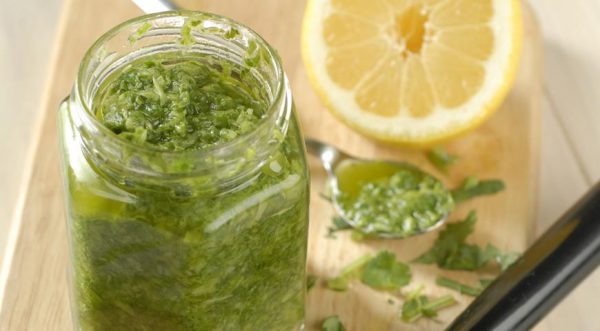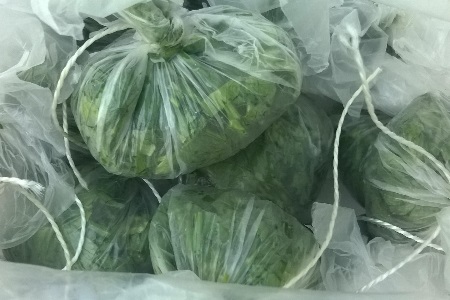Harvesting cilantro, drying and freezing for the winter
Content
Features of cilantro
All the herbs that people eat have some beneficial properties. Cilantro is no exception, its leaves contain essential oils, vitamins, organic acids, which have a general strengthening effect on the body. Biologically active substances help to process meat and fatty foods, protect the body from toxins. If cilantro is consumed regularly, blood supply will improve, many problems with blood pressure and gastrointestinal tract will go away.
There is rarely a person who is indifferent to this interesting herb. Usually people are very fond of cilantro or actively reject it, they are annoyed by the slightest smell. This is due to its composition, essential oils and biologically active substances benefit someone, but someone's body rejects them, because it fears harm. Even allergic reactions to this plant are possible, but, probably, they are not frequent, judging by the wide distribution and high demand for cilantro throughout the world.
Why do you need to procure
In summer, fresh herbs are added to salads, sauces, first or second courses; this is easy to do even for city dwellers who do not have a summer cottage. But in winter it is not so easy to do this. You can keep it in the refrigerator for no more than 3 weeks. They do it like this: freshly picked twigs or leaves are placed in water, the container is covered with a plastic bag. This is the case with all herbs. The leaves will not last longer when stored without water, if they are simply put in bags or plastic containers.
In order not to exclude cilantro from the diet at the end of summer, people have come up with many ways to prepare it for the winter. It is salted, pickled, special dressings are made, which can be stored much longer so that they can be added to ready-made dishes or used in their preparation throughout the winter.
For the marinade, you need to take 1 tablespoon of 9 percent vinegar, a pinch of salt for 0.3 liters of water. Cilantro greens are washed, dried with a paper towel, cut finely, placed tightly in glass jars, poured with marinade, let it brew for a while. Pour some vegetable oil on top for better preservation.
Some housewives suggest using an oriental seasoning called "Chutney" as a preparation for the winter. Walnuts, garlic, cilantro, its seeds, which for some reason we call "coriander", onions, hot peppers without seeds are ground and, constantly stirring, diluted with marinade. The marinade is made very quickly by mixing 50 ml of boiled water with 3 tablespoons of wine vinegar. The sauce is brought to the consistency of a thick, soft paste.
If desired, add turmeric, salt or paprika to it. This ready-made sauce keeps well in the cold and saves cilantro lovers all winter long. You can prepare coriander greens in other similar ways - Eastern and Latin American cuisines offer many sauces based on cilantro.Well, for those who prefer more traditional ways of harvesting, or simply do not want to dilute the taste and smell of cilantro with other spices, there is drying or freezing.
Video"Useful tips for preserving greenery"
A demonstration video with helpful tips on how to keep your greens fresh.
Drying
For drying, fresh greens are selected, collected before flowering - the more ripe the plant, the softer and weaker its specific aroma becomes. Sprigs of cilantro, like other spicy herbs, are usually dried with bunches suspended by the stalks in ventilated areas: in kitchens, verandas, attics. The main thing is that there is no direct sunlight, and the temperature does not rise above 40 degrees. To protect from dust (or the sun), clumps of grass are covered with a thin natural cloth or paper bag.
If the owners want to save the chopped greens, then they will need to be dried on special horizontal planes: pallets or trays. The twigs (or leaves torn off from them) are sorted out, leaving only clean, healthy, undamaged ones. Then they are cut and laid out on pallets covered with paper in a thin layer. Dry in a dry, ventilated room, away from direct sunlight, stirring occasionally to prevent mold or caking of plant material. You can put the pallet in the oven, dry with the door ajar at a temperature not exceeding 40 degrees. It is advisable to store dried herbs in glass jars under tightly closed lids.
Drying allows you to preserve not only the aroma, but also all the useful properties of cilantro until next spring. Some housewives say that before drying, as well as before other manipulations, the grass must be washed and then dried with a paper towel. Others argue that washing plants that look clean is not worth it, anyway, then dry grass is not eaten just like that, but added to dishes that are still undergoing heat treatment. Here everyone must decide for himself.
Further freezing
Modern freezers provide an excellent opportunity to prepare frozen herbs for the winter. This is also a great way to preserve all the beneficial properties of the plant and strengthen the health of your family by adding summer vitamins to the dishes in winter. For freezing, healthy fresh plants are selected, finely cut, laid out in bags, tightly closed and placed in the freezer. You can also freeze in portions. For this, ice molds are used. Cut leaves are placed in them, poured with water and frozen. Then you can take out one ice cube all winter and throw it into soup, stew or any other dish.
You can freeze cilantro leaves not only with water, but also with oil. A container of the right size (usually small) is filled with leaves and not water is added, but any vegetable or melted butter. It will also freeze, and will retain greenery no worse than water. Oil, moreover frozen, will also help preserve the useful components of cilantro until the next harvest. You can make a herb-based snack butter.
For this, cilantro is washed, chopped and mixed with butter, preparing a delicious "spread" for a sandwich or toast. Then, with the help of cling film or parchment, a "sausage" convenient for storage and cutting is formed, placed in the freezer. Cut into pieces and use for cooking minced meat, vegetables, rice or potatoes within six months.
Video"How to Freeze Any Greens"
Demonstration video with examples and instructions on how to freeze any greens.





